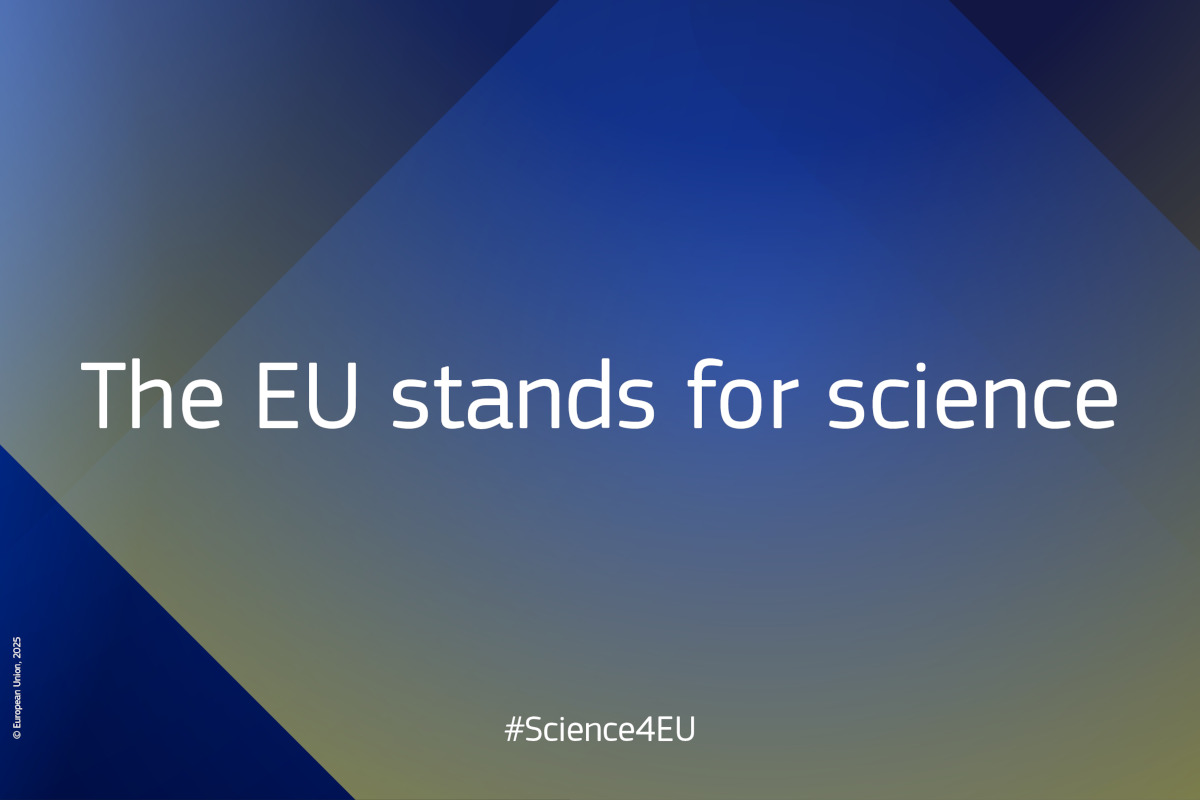Czech and Estonian researchers are joining forces to build a cross-border cybersecurity hub that will strengthen Europe’s digital defences in the face of growing cyber threats.
Special series

Science4EU
The Science4EU campaign shows how the EU stands for science. It shines a spotlight on the scientists, researchers, and innovators working with EU support to improve our lives and shape a better future for everyone.
Do you also stand for science?
Podcast
Media AV Portal Audio
More stories

Farmers and foresters across Europe are sharing sustainable bio-based practices and technologies, showing how local knowledge and European collaboration can help drive the transition to a greener future.
Most popular
-
1By Anthony King
-
2By Jessica Berthereau
-
3By Sofia Sanchez Manzanaro
-
4By Michaela Nesvarova
-
5
Top videos
From medieval stronghold to cyber fortress: shielding Europe’s digital future
8 August 2025
Why dolphins’ arteries don’t age – and what that means for us
6 August 2025
Past articles
Postal voting systems - where people vote from home prior to the election and return their ballot paper by mail - can discourage people from voting in the next election, according to recent European research which suggests that many strongly held ideas about voter behaviour during elections are plain wrong.
By studying the atmospheres of distant planets with sensitive new light analysis techniques, astrobiologists might be able to pinpoint which ones could be home to alien lifeforms.
For some, social media may seem like it is just filled with selfies, gossip and videos of cats, but others are using it to tackle issues critical to our society such as the environment and mental health.
Trade openness can protect developing countries against economic shocks, researchers believe.
Beetles, wasps and flies could be at the forefront of the next agricultural revolution as scientists draw on insects’ millions of years of farming experience in a bid to find new, environmentally friendly ways of cultivating crops.
From invisible online markets, past border controls and straight to the consumer, fake pharmaceuticals are on the rise, but now a mix of anti-counterfeiting technology is helping halt the wave of fake drugs and their often lethal consequences.
Gravitational waves have been detected on earth for the first time, researchers at the Laser Interferometer Gravitational-wave Observatory (LIGO) in the US and the VIRGO detector in Italy have announced.
Galactic filaments – the vast threads that link clusters of galaxies – may feed them with the matter required to make new stars, researchers now believe.
The ubiquity of CCTV cameras makes it easy to track down criminal suspects – unless they’re wearing a disguise. But even that wouldn’t fool the latest software, which can recognise people based on their anatomy or on the way they walk.
If you've ever seen those annoying lip-sync errors on TV when the video doesn't quite match up to the sound, did you also realise that your brain eventually adjusts the signal to improve your experience?
Bygone Asian cotton and porcelain trade routes could have spurred the consumption of luxury goods in Europe, researchers believe, while scientific cooperation with modern Asia is still leading to new technological advances.
EU citizens will be able to compare cancer incidence and survival rates across Member States once a continent-wide cancer information system is operational next year, according to Professor Alexander Katalinic, from the University of Lübeck in Germany, Chairman of the European Network of Cancer Registries (ENCR).
A bacterium that causes pneumonia is being redesigned to act as a ‘cell doctor’ that detects and treats disease from inside the human body.
Much of the focus in trade talks around the world at present is on regional deals, rather than global agreements. But researchers say the goal of multilateral pacts will remain in the medium and longer term, given the pressures of globalisation.
What are the latest techniques being developed to stop counterfeit drugs at the border? Why do countries still prefer bi- and multilateral agreements over global deals, and how does trade play into financial crises? This February, Horizon uncovers what’s setting the course for global trade.
The world’s hardest natural material also has the most enthralling sparkle – these two properties mean that tiny diamonds are giving us dramatic new ways of interacting with the human body.
The EU’s 2007-2013 research funding programme has had a ‘substantial’ impact on competitiveness in Europe, according to a European Commission report and the findings of an independent panel.
Researchers are getting ready to test a tobacco-powered aeroplane thanks to a new bio jet fuel made from the seeds of nicotine-free plants, and the result could be a 75 % reduction in carbon emissions compared to fossil fuels.
How should the welfare state evolve in the 21st century? Researchers are looking at everything from healthcare to immigration to design new systems fit for a post-crisis Europe that is facing challenges such as austerity economics, an ageing society and increased migration.
You might think that part-human, part-machine cyborgs belong only in fiction, but adding a bit of technology into your body could help prop it up as it ages, as researchers are demonstrating with the development of artificial retinas to improve deteriorating vision.




























